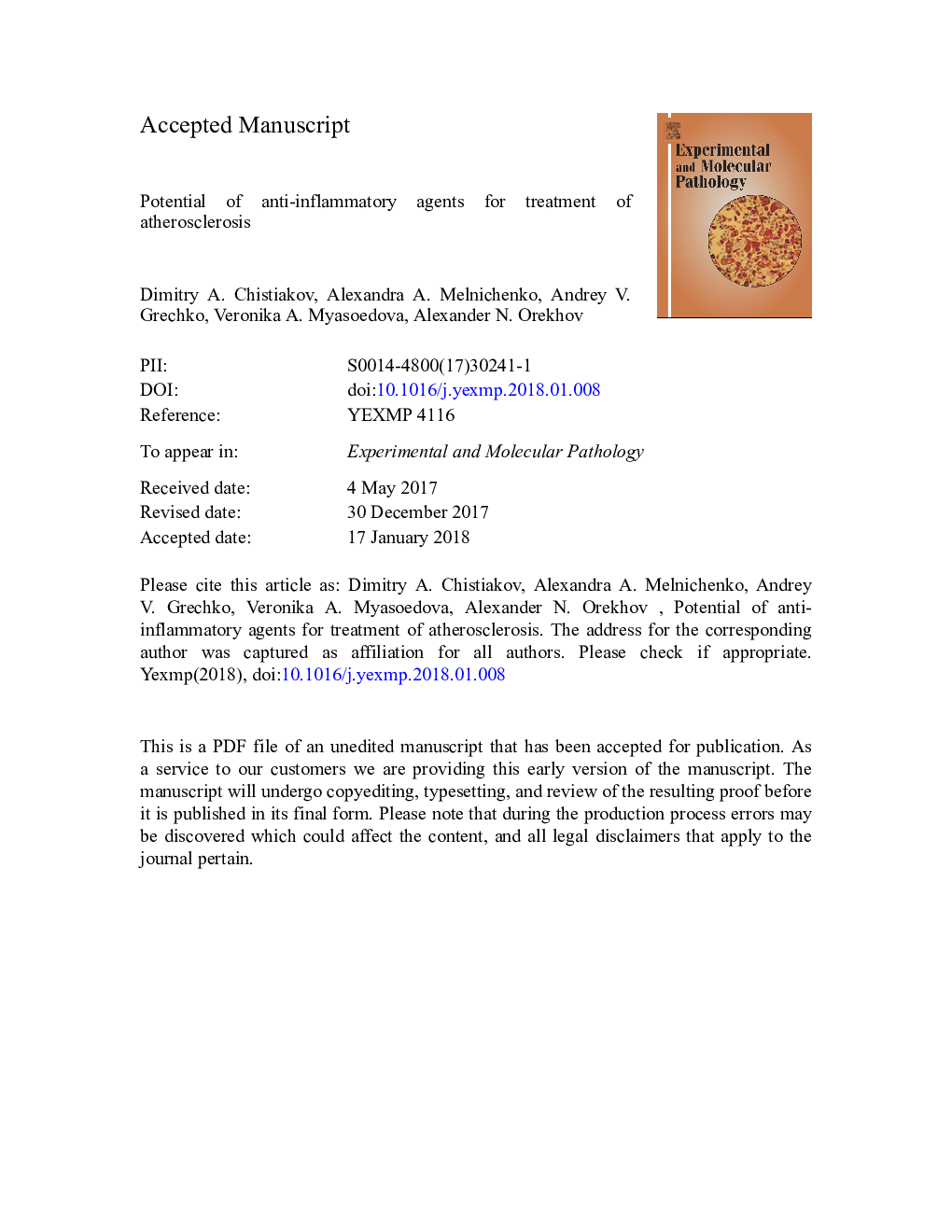| Article ID | Journal | Published Year | Pages | File Type |
|---|---|---|---|---|
| 8624154 | Experimental and Molecular Pathology | 2018 | 43 Pages |
Abstract
Chronic inflammation is a central pathogenic mechanism of atherosclerosis induction and progression. Vascular inflammation is associated with accelerated onset of late atherosclerosis complications. Atherosclerosis-related inflammation is mediated by a complex cocktail of pro-inflammatory cytokines, chemokines, bioactive lipids, and adhesion molecules, and blocking the key pro-atherogenic inflammatory mechanisms can be beneficial for treatment of atherosclerosis. Therapeutic agents that specifically target some of the atherosclerosis-related inflammatory mechanisms have been evaluated in preclinical and clinical studies. The most promising anti-inflammatory compounds for treatment of atherosclerosis include non-specific anti-inflammatory drugs, phospholipase inhibitors, blockers of major inflammatory cytokines, leukotrienes, adhesion molecules, and pro-inflammatory signaling pathways, such as CCL2-CCR2 axis or p38 MAPK pathway. Ongoing studies attempt evaluating therapeutic utility of these anti-inflammatory drugs for treatment of atherosclerosis. The obtained results are important for our understanding of atherosclerosis-related inflammatory mechanisms and for designing randomized controlled studies assessing the effect of specific anti-inflammatory strategies on cardiovascular outcomes.
Related Topics
Life Sciences
Biochemistry, Genetics and Molecular Biology
Clinical Biochemistry
Authors
Dimitry A. Chistiakov, Alexandra A. Melnichenko, Andrey V. Grechko, Veronika A. Myasoedova, Alexander N. Orekhov,
